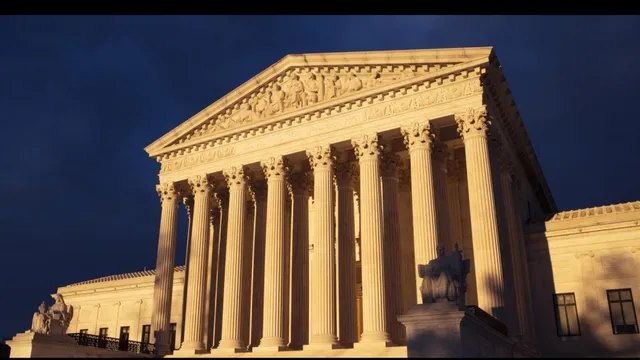
Supreme Court limits judges' powers over nationwide injunctions on birthright citizenship
2025-06-28 15:02- The Supreme Court ruled that federal judges cannot issue nationwide injunctions, impacting how legal challenges are handled.
- The ruling returns cases regarding Trump's birthright citizenship executive order to lower courts for further consideration.
- This decision may lead to inconsistent policies across states and embolden the executive branch to enact controversial measures.
Express your sentiment!
Insights
On June 27, 2025, the Supreme Court of the United States issued a significant ruling regarding President Donald Trump's administration's attempts to terminate birthright citizenship. This ruling came amid ongoing legal battles over Trump's executive order, which proposed to deny citizenship to children born in the U.S. to individuals living in the country illegally. The Court's conservative majority determined that federal district courts do not possess the authority to grant nationwide injunctions, a decision that could have far-reaching consequences for executive power and judicial checks on that power. Trump's order, signed on his first day in office, is seen as part of his broader hardline immigration agenda. Birthright citizenship has been a longstanding legal principle in the United States established under the 14th Amendment, which has been upheld by precedents set by past Supreme Court rulings. However, Trump's administration has argued that the phrase “subject to the jurisdiction thereof” in the amendment allows for the denial of citizenship to children of noncitizen parents, a position that lower courts have consistently rejected. The Supreme Court’s decision did not directly tackle the constitutionality of Trump's executive order, instead focusing on procedural issues of how lower courts can issue rulings going forward. As a result of the ruling, pending cases related to the Trump administration's order now return to lower courts, where judges will have to adjust their decisions to comply with the Supreme Court's constraints on nationwide relief. This situation could create a confusing patchwork of laws regarding birthright citizenship across different states, especially since 22 states had previously challenged the order in court. Dissenting justices expressed concern that without nationwide injunctions, the government could enforce potentially unconstitutional policies, leaving many vulnerable individuals without protection. The dissent warned of a looming
Contexts
The history of birthright citizenship in the United States is rooted in the principle of jus soli, or right of the soil, which grants citizenship to individuals born on U.S. soil regardless of their parents' nationality. This concept was solidified in the 14th Amendment to the U.S. Constitution, ratified in 1868, which states that "all persons born or naturalized in the United States, and subject to the jurisdiction thereof, are citizens of the United States." The Amendment was enacted primarily to ensure that former slaves and their descendants were granted citizenship after the Civil War, as they were previously denied legal recognition under U.S. law. This foundational principle has played a crucial role in shaping the demographic landscape of the nation, allowing individuals born within the United States, including those of immigrant parents, to automatically become citizens. Over the years, the interpretation of birthright citizenship has faced scrutiny and challenges. Various legislative efforts have sought to modify or repeal these rights, particularly amid growing debates on immigration policy and national identity. Critics argue that birthright citizenship encourages illegal immigration, as parents might enter the U.S. illegally with the intention of securing citizenship for their children. Supporters, however, contend that it is an essential aspect of American democracy and an important reflection of the country's values regarding equality and individual rights. The debate has intensified in recent years, with various public figures and groups voicing opinions on whether the 14th Amendment needs to be amended or whether its interpretation should be changed. There have been numerous court cases addressing the issue of birthright citizenship, which have affirmed its constitutionality over time. However, the legal landscape remains contentious, with varying opinions among legal scholars, politicians, and the public at large. Notable cases, such as United States v. Wong Kim Ark in 1898, established the precedent that children born in the U.S. to non-citizen parents are indeed entitled to citizenship. Nevertheless, as immigration patterns change and the political climate shifts, questions surrounding the future of birthright citizenship continue to emerge. In conclusion, birthright citizenship remains a pivotal issue in discussions around immigration and national identity in the United States. As the debate evolves, it is essential to balance the historical commitments made by the 14th Amendment with contemporary perspectives on immigration and citizenship rights. The future of birthright citizenship may depend on both legal interpretations and broader societal attitudes toward immigration and the inclusivity of various communities within the American landscape.